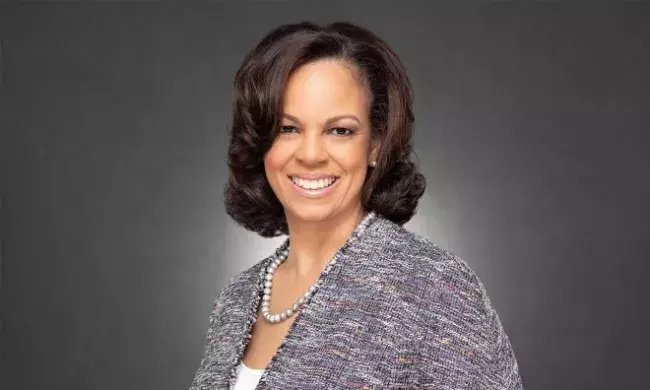
To Diversify the C-Suite, “Put Your Money Where Your Mouth Is” Advises Carey Alum
“There are only five Black CEOs of Fortune 500 companies, and if you compare that to … the percentage of Black consumers, quite frankly, there's a huge discrepancy there,” said Libi Rice, keynote speaker at the fourth Diversity, Equity, Inclusion, and Belonging Summit hosted by Johns Hopkins Carey Business School.
Rice holds an MBA degree with a marketing concentration from the school and is vice president and chief communications officer of The Executive Leadership Council, an organization that develops Black executive leaders. Alex Triantis, dean of Carey Business School, interviewed Rice, one of many business leaders who spoke during the summit about the role of higher education and leadership development programs in addressing racial inequity in business and the hallmarks of successful Diversity, Equity, Inclusion, and Belonging (DEIB) initiatives.
The racial reckoning that began in 2020 after the murder of George Floyd shone a spotlight on advancement gaps for Black executives, with corporations moving quickly to change their hiring and promotion practices “more intentionally than they had in the past,” said Rice. Systemic obstacles remain, however, such as how to gain the profit and loss (P&L) experience that companies want for future leaders and board members. Rice cited a study that found “in the Fortune 500, only two percent of Black women had P&L responsibility.”
What to Read Next

career outcomes
Alum catapults from MBA to senior VP at SonyAnother obstacle is a discrepancy in perceived support for underrepresented employees. While a vast majority of whites believe they are allies of underrepresented colleagues, only 26 percent of Black women say they have strong allies in the workplace, she said.
When considering their intentions, actions, and accountability with respect to DEIB programs, Rice advised companies to:
- Start from the top. The CEO and board must support a robust effort to diversify hires and advancement. DEIB initiatives can’t be “a pet project off the side of someone’s desk. It needs to be driven by the CEO,” said Rice. Corporate boards, she said, also should be diverse.
- Set goals for hiring and advancement of underrepresented executives and tie bonuses to managers’ ability to meet them. “What gets measured gets done,” said Rice.
- Be intentional with succession planning and in looking for and recruiting good people outside of usual networks.
And, she said, “Put your money where your mouth is and be committed to putting some of these practices into place.”
Rice also talked about how important her Carey professors and other mentors were to her success and offered tips for business students who aspire to corporate leadership positions. Watch the full program here.


